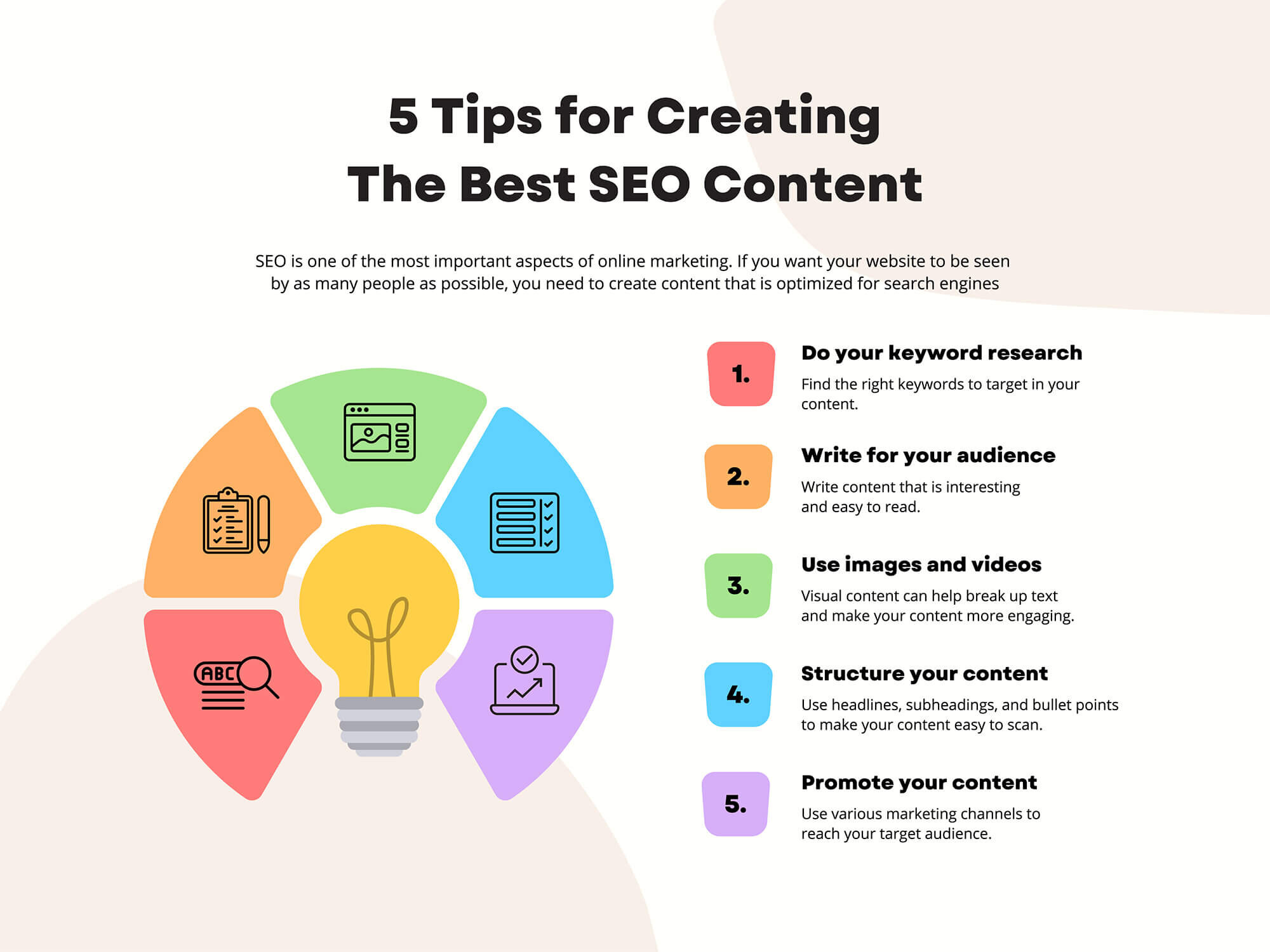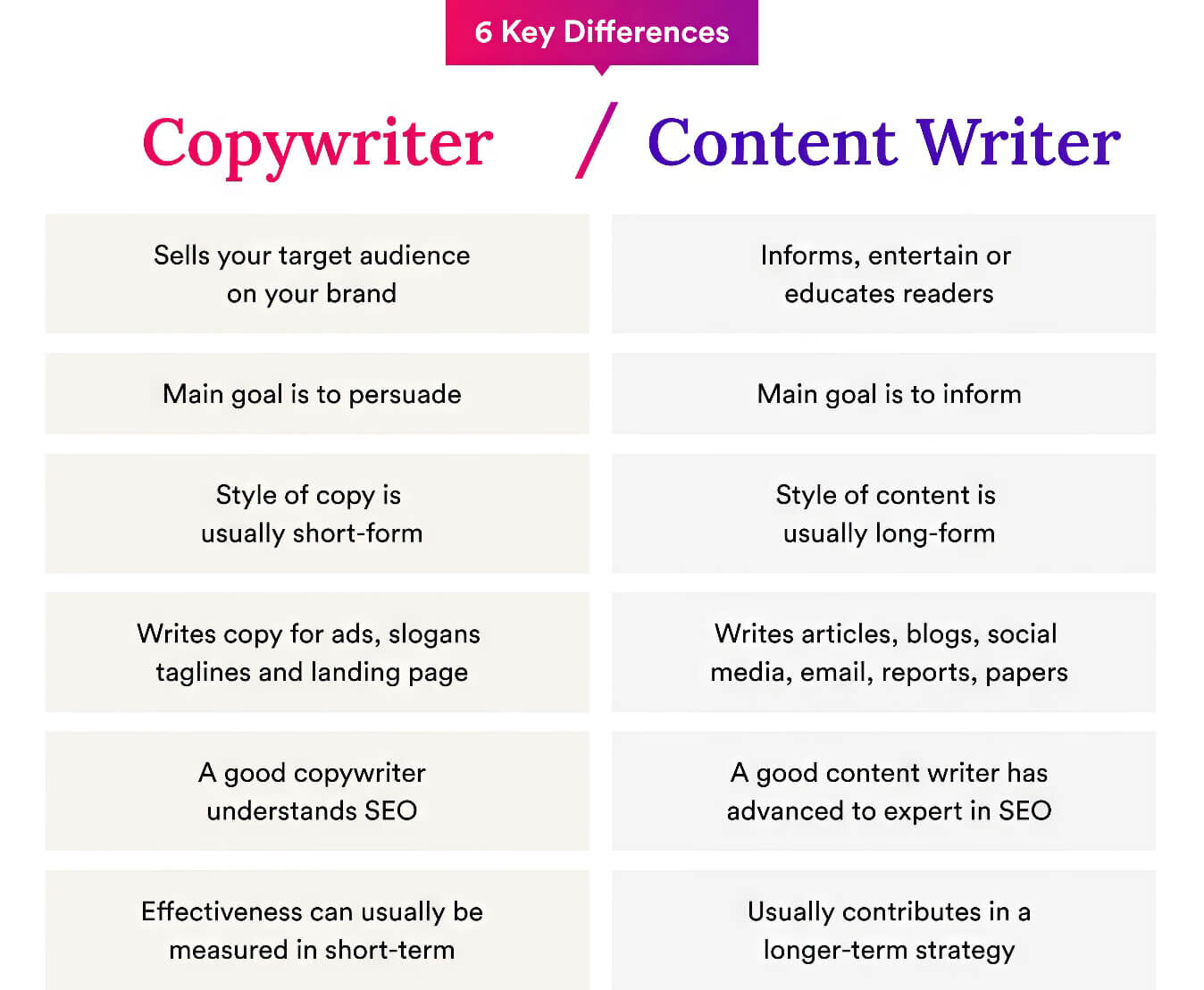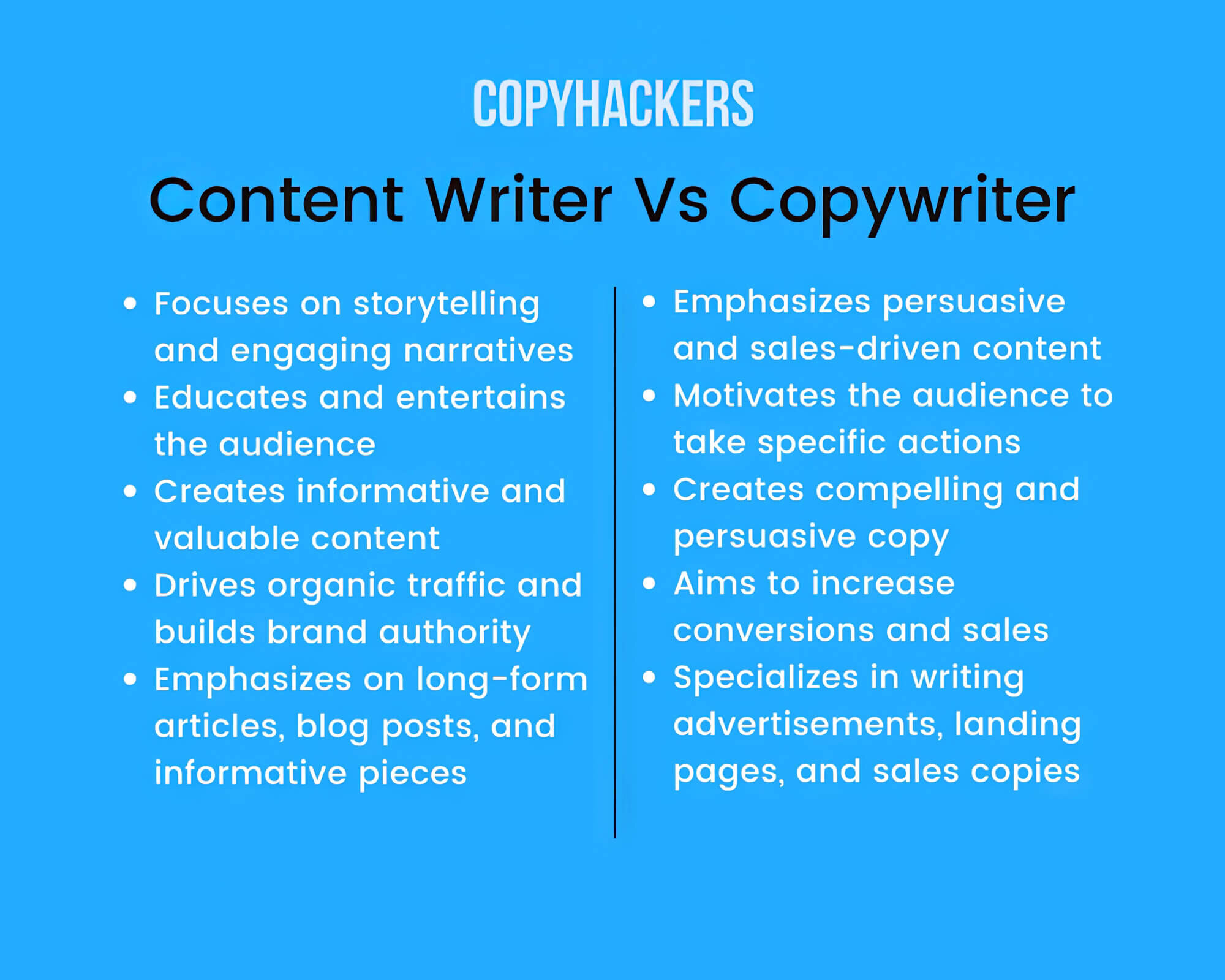These days, digital marketing stands out as a highly effective way to connect with audiences through content marketing. Its reach and influence can significantly boost engagement and interaction.
In the realm of digital marketing, content truly reigns supreme. By offering top-notch digital material on your website, you can capture audience attention effectively. However, neglecting this can adversely affect your online business. Avoiding such pitfalls is crucial if you’re looking to grow.

That is why writing is one of the most essential tools in the domain of digital marketing. It allows marketers to create compelling digital content that can appeal to viewers. On that note, two major roles of copywriters and content writers are being used today — content writing and copywriting.
In this guide, complete with a table of contents, we have explored both these forms of writing to understand their differences and synergies better. So, if you are a business owner who wishes to make the most of these writing tools, read on!
Want to receive updates? Sign up to our newsletter
Each time a new blog is posted, you’ll receive a notification, it’s really that simple.
What Is Copywriting?
First off, let’s explore what copywriting entails. Simply put, it involves crafting written content to promote a specific product or service. This type of content is designed to engage through brevity and clarity, encouraging the reader to take a desired action.
This action can range from purchasing a product to simply signing up for the website. Whatever it is, the action tends to benefit the marketer or the website owner. For instance, if it persuades the reader to sign up for the brand’s newsletter, it can be considered a potential lead for a future sale.
The copywriting process aims to attract prospective customers or convert readers to paying consumers. That is why copywriting is a valuable tool for marketers these days.

However, to achieve that goal, the compelling piece of content copywriters produce needs to appeal to the readers’ desires. It must address what the readers want, even though the primary goal is to inspire a specific action.
Another characteristic of copywriting is that copywriting focuses on content that influences the reader’s actions to some extent. It should create a sense of urgency that encourages readers to take immediate action.
Copywriters write engaging content for diverse digital marketing techniques. Below, we have listed some of the most common areas used.
- Landing pages
- Product descriptions
- Brochures
- Digital ads
- Email marketing
- Marketing messages or other text ad content
- Social media captions and taglines
- Advertisement slogans
Like the above examples, most forms of content are focused on persuading the target audience to take immediate action. Because of this reason, copywriting is an effective short-term marketing strategy.
What Is Content Writing?
Now, let’s delve into the content writing process. It involves creating well-researched, meaningful content aimed at answering readers’ questions. Essentially, a content writer crafts descriptive and informative pieces that match search intent, offering real value to the audience.
Such content does not need to have a persuasive angle. This means it doesn’t necessarily need to promote or sell a product or service to the user. That said, it needs to be easy to read and interesting enough to capture users’ attention.
The goal of content writing is to craft engaging material that resonates with readers. This approach fosters relationships by building trust and loyalty with your audience. For this reason, many marketers consider content writing a long-term strategy.

Content writing focuses on generating organic traffic to website content instead of relying solely on paid traffic, one of its most notable characteristics. Because of that, content writers use a search engine optimisation (SEO) technique that increases the rank of the webpage on search engine results pages.
If the page is optimised for search engines, it will be near the top of the search results, prompting more people to click on the link. As for the content itself, such as an engaging blog article, may delve into industry trends, case studies, and niche market insights.
This form of writing is used to create different types of content, such as:
- In-depth blog post articles
- Detailed social media posts
- E-books
- White papers
- How-to guides
- Press releases
- Video scripts
Critical Differences Between Copywriting And Content Writing
Now that you have a basic idea about content writing vs copywriting let’s discuss what makes these processes different. As you can see below, there are several points of difference between them.
1. Content-Length
The biggest and most obvious difference between these two strategies is the length of the content. As you can already guess from the above discussion, copywriting allows you to write short-form content that is succinct and punchy. Because of that, users can read through most of it quickly.
On the other hand, content writing enables you to write long-form content that is usually thousands of words in length. Since it includes detailed discussions about different topics, it takes some time to read through.
2. Overall Objective
The fundamental goal of copywriting is to persuade the readers to take a specific action. It seeks to highlight the features of a product or service as benefits to the customer and often includes a call to action. Ultimately, the action taken by the user will primarily benefit the marketer or the business owner.
In contrast, content writing seeks to inform the reader instead of trying to persuade them to act. And while it does help marketers in the long term, its immediate objective is to help the user looking for information. There are no calls to action in this case, and the information is often presented in a neutral tone.

3. Search Engine Optimisation
Another point of difference between copywriting and content writing is regarding the use of SEO practises. In the case of copywriting, SEO is used in a limited scope for writing product descriptions, landing page copy or ad texts. However, since most marketers prefer paid ad campaigns for short-form content, SEO is not as critical, allowing for a brief min read duration.
However, content writers make heavy use of on-page SEO principles for creating content. An SEO content writer performs extensive keyword research while writing to ensure that the content is good enough for search engine algorithms. This is because paid campaigns are only somewhat feasible for long-form content, so they must rely mostly on search result rankings to drive traffic.
4. Use Of Emotions
Typically, copywriters tend to use emotionally rich writing styles and evocative language to motivate the readers. Through the use of different literary devices and emotionally charged tones, they seek to evoke feelings of nostalgia or excitement. In most cases, the readers give in to such emotions and end up purchasing the product or service being marketed.
Content writing, on the other hand, tends to use emotions sparingly. Since the main objective here is to inform the reader, there is little need for emotions. That is why writers develop such content to sound straightforward. This doesn’t mean that content writers write blog posts and guides completely devoid of emotions, though. They may include emotional tones depending on the needs and specifications of the post.
Synergy Between Copywriting And Content Writing
The above discussion clearly illustrates the complementary nature of these two forms of writing. But if you want your business’s most effective content strategy, you should incorporate both copywriting and content writing methods, regardless of their differences. The synergy between these two forms of written content can help in improving brand communication, thereby ensuring the success of your digital marketing efforts.
We admit that copywriting can inspire users to purchase your goods or services, but using it all the time is not wise. If you do that, especially through email newsletters, most customers will believe you are only trying to sell you something, which can hurt the business’s reputation.

However, using content writing to create informative posts will allow your customers to engage with the brand. That will help in building relationships and enhancing the conversion rate.
The same is applicable to the opposite scenario as well. Writing longer forms of content all the time can make it boring for users. We don’t need to tell you how harmful that can be for a business. Besides, it limits your online presence and prevents you from fully utilising the benefits of such digital marketing strategies.
Instead, if you use copywriting vs standard advertising to create interesting examples of copywriting for your products or services from time to time, you can attract new customers. That will eventually expand your brand’s reach and help you achieve your business goals.
Frequently Asked Questions
1. What Are The Key Skills Necessary For Content Writing?
Good content writers should be able to write fluently with minimal grammatical errors. They should also be able to perform extensive research so that they can write content that is descriptive and factually correct. These writers should also be flexible enough to write about different types of content. Apart from that, possessing SEO skills is imperative for such writers.
2. What Are The Skills Necessary For Copywriting?
A good copywriter should have excellent editing skills and command over the language so that they can produce grammatically correct content. Besides, they should be able to understand the needs and demands of the readers to create a compelling copy to persuade them. Also, they should possess a creative writing flair to develop attention-grabbing slogans and captions.
3. Can A Writer Be Both a Content Writer And a Copywriter?
Yes, a skilled writer can fulfil both roles without any issues. After all, the fundamental idea behind both processes is the same: creating high-quality marketing content. If the writer knows the differences between the two types of writing, copywriting vs content writing, they can switch between copywriting and content writing copywriting styles whenever required. That will allow them to create versatile content for different purposes.
Master the Distinction Between Copywriting and Content Writing
Now that we have arrived at the end, you can clearly understand that content writing and copy are different strategies with different usage scenarios.
As we have mentioned, it is a wise idea to utilise both forms of writing in a business to maximise the chances of success. However, if you are not able to get both, you may need to choose one over the other.
In that situation, you will need to determine the type of writing that you need. Get a copywriter if you want someone to write product descriptions, landing page content or snappy social media ads captions. But if you want to create informative blogs or detailed guides, get a content writer.





